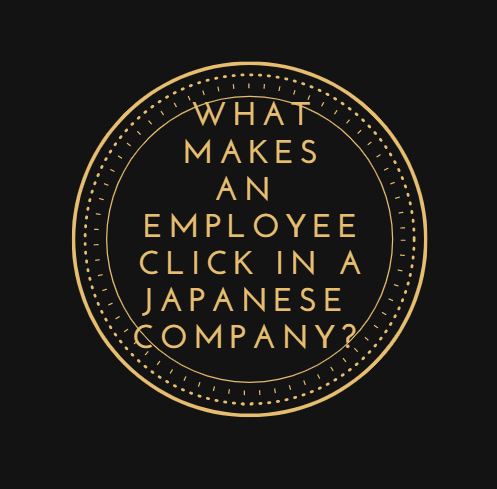Contributed by
Ms.Vedha Narayanasamy
Regional Manager – South India and Sri Lanka
Customer & Hospital Relations
WellBe Medic (India) Pvt. Ltd.

I work for a Japanese service company providing assistance to Japanese expats worldwide. We have clients ranging from the top brass of Japanese corporations to a new trainee in his/her first posting abroad. Based on where they stand in the Japanese social hierarchy, some of the expats can be very flexible and understanding, and some of them are intimidating and unforgiving. But what is common for all expats is, they respect a hard-working Indian and value our opinions.
In this post, I am going to give you two pointers on what will make you click in a Japanese company.
First pointer, making a good first impression:
Studies in psychology shows that when someone gets a good first impression of you, they will change their opinion about you only after you make SIX mistakes! The same holds good for a bad first impression – you have to prove your worth 6 full times before someone changes their opinion of you.
So how do we nail that good daiichi inshou that will make us look trustworthy in front of a Japanese expat?
By making sure you pay a lot of attention to Midashinami (Personal Grooming).
I cannot stress how important this is. First impressions are made within 3-5 seconds of meeting that person, and 60% of what makes a good first impression depends on your appearance. So before meeting a Japanese person, ask these questions:
Is your hair too long? Is it messy? Do you have dandruff flakes on your shoulders?
Is your shirt wrinkly? Is your collar and sleeve dirty?
Are your teeth, nails, and ears looking clean? Are your nails cut?
Are you wearing a deodorant or perfume? Do you have body odor? Is your perfume too strong?
Are your shoes clean? Are you wearing appropriate clothes for the working environment that you are in?
Are your accessories (handbags, files etc.) clean? Or are they looking frayed and worn out?
How is your posture? Are you slouching? Are you looking at them eye-to-eye?
Midashinami, a confident smile and composed way of talking is a sure winner in front of the Japanese eyes.
Second pointer, gaining the trust of your colleagues:
Once you land a job in a Japanese company, gaining the trust of your Japanese manager/supervisor/colleague is an important factor that will shape up your career.
I have noticed a lot of Indians trying to gain favour from their bosses by trying to butter them up, agreeing to everything that their bosses say. Sorry to burst your bubble guys, none of this works!
What DOES work then? HOU-REN-SOU.
If you have been studying Japanese for a few years now, I am sure you would have come across this coined phrase.
HOU – HOUKOKU (Reporting)
REN – RENRAKU (Communicating)
SOU – SOUDAN (Discussing)
It is not enough if you just know what this acronym means. You should grasp the know-how of how exactly to implement HOU-REN-SOU at your workplace.
Reporting:
If an instruction from your boss is the start of a task, a report from your end is what concludes a task. Be concise and precise. State your opinions as necessary, and do not hesitate to ask for advice. If it is a lengthy task, give periodical updates to your manager/supervisor without fail. When reporting a mistake that you may have made, do not absolve yourself of responsibility or make excuses. Call a spade a spade, apologize for your mistakes if any, and make sure you correct the mistake the next time!
Communicating:
Remember 5W and 3H (What, When, Where, Who, Why, How, How Many, How Much). In a work environment where numbers are everything, and precise information is the key to a smooth workflow, your communication will make a world of difference.
Discussing:
Discuss when in distress. If you are confused, not sure about what to do or how to proceed, colleagues and managers will always help, IF you ask for help in the right manner. Ask for the other person’s convenient time for a discussion, state your problem, state how you tried to solve the problem, where you got stuck, and then ask for their advice or opinion. Once the concerned problem is resolved, do not forget to go back and give a HOUKOKU and thanks to the person who helped you!
The way you demonstrate HOU-REN-SOU will play a major role in highlighting your qualities of responsibility and professionalism in the workplace, so make sure you make the most of it.
So folks, if you keep in mind MIDASHINAMI and HOU-REN-SOU, you will be able navigate the nitty-gritties of a Japanese workplace confidently and efficiently. Good luck!
Leave your questions in the comments and I will respond to your queries!
Disclaimer
The views, thoughts, and opinions expressed in the text belong solely to the author, and not necessarily to the author’s employer, organization, committee or other group or individual.


